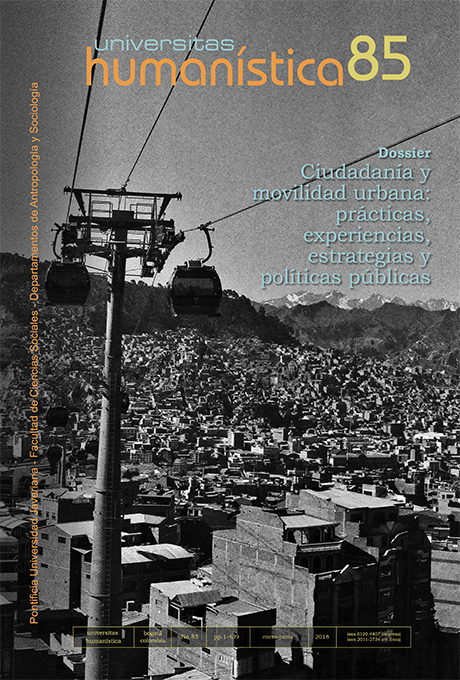Resumen
El artículo desarrolla un concepto de seguridad urbana que no se reduce al tema de la prevención de delitos o la intervención represiva de fuerzas gubernamentales, sino que tiene en cuenta la dimensión espacial de la ciudad y los diferentes tipos e intereses de sus habitantes. Está dividido en dos secciones, una, que explora concepciones
modernas del espacio, tomando para ello filósofos del siglo XX, y su relación con la ciudad. Vemos el espacio urbano como medio en donde se inscriben los signos de una narración discontinua y a veces fragmentaria, en donde la dimensión espacial es a la vez pasiva y actuante, en donde los caminos en ella nos arrojan infinitas perspectivas
sobre lo que es una misma ciudad. Con ello determinamos los conceptos básicos que la segunda parte utilizará para establecer un concepto de seguridad que no simplifique su significado ni limite su alcance al aspecto estadístico para establecer su realidad.

La revista Universitas Humanística se encuentra registrada bajo la licencia Creative Commons Reconocimiento 4.0 Internacional. Por lo tanto, esta obra se puede reproducir, distribuir y comunicar públicamente en formato digital, siempre que se reconozca el nombre de los autores y a la Pontificia Universidad Javeriana. Se permite citar, adaptar, transformar, autoarchivar, republicar y crear a partir del material, para cualquier finalidad (incluso comercial), siempre que se reconozca adecuadamente la autoría, se proporcione un enlace a la obra original y se indique si se han realizado cambios. La Pontificia Universidad Javeriana no retiene los derechos sobre las obras publicadas y los contenidos son responsabilidad exclusiva de los autores, quienes conservan sus derechos morales, intelectuales, de privacidad y publicidad.
El aval sobre la intervención de la obra (revisión, corrección de estilo, traducción, diagramación) y su posterior divulgación se otorga mediante una licencia de uso y no a través de una cesión de derechos, lo que representa que la revista y la Pontificia Universidad Javeriana se eximen de cualquier responsabilidad que se pueda derivar de una mala práctica ética por parte de los autores. En consecuencia de la protección brindada por la licencia de uso, la revista no se encuentra en la obligación de publicar retractaciones o modificar la información ya publicada, a no ser que la errata surja del proceso de gestión editorial. La publicación de contenidos en esta revista no representa regalías para los contribuyentes.


